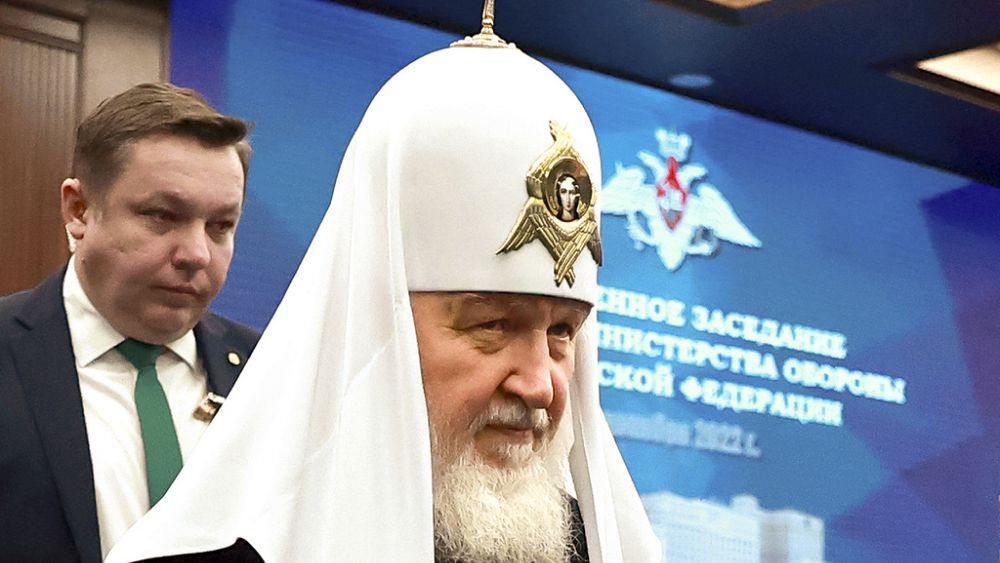
Standing in an old Orthodox church in Antalya with a Bible in one hand and a candle in the other, the Rev. Ioann Koval led one of his first services in Turkey after Russian Orthodox Church leadership decided to defrock him following his prayer for peace in Ukraine.
 ADVERTISEMENT
ADVERTISEMENTLast September, when President Vladimir Putin ordered a partial mobilization of reservists, Moscow Patriarch Kirill required his clergymen to pray for victory.
Standing in front of the altar and dozens of his parishioners in one of Moscow’s churches, Koval decided to put the peace above the patriarch’s orders.
“With the word ‘victory’ the prayer acquired a propagandistic meaning, shaping the correct thinking among the parishioners, among the clergy, what they should think about and how they should see these hostilities,” Koval said.
“It went against my conscience. I couldn’t submit to this political pressure from the hierarchy.”
In the prayer he recited multiple times, the 45-year-old priest changed just one word, replacing “victory” with “peace” but it was enough for the church court to remove his priestly rank.
Publicly praying or calling for peace also poses risks of prosecution from the Russian state.
Shortly after Russia’s military operation began, lawmakers passed legislation that allowed prosecuting thousands of people for “discrediting the Russian army,” a charge that in reality applies to anything that contradicts the official narrative, be it a commentary on social networks or a prayer in church.
When the military operation started, most priests remained silent, fearing pressure from the church and state authorities; only a small fraction have spoken out.
Of more than 40,000 clergymen in the Russian Orthodox Church, only 300 priests signed a public letter calling for peace in Ukraine.
But each of the public voices against the fighting is crucial, said Natallia Vasilevich, the coordinator for the human rights group Christians Against War.
“It breaks what seems to be a monolithic position of the Russian Orthodox Church,” she told reporters.
 ADVERTISEMENT
ADVERTISEMENTSince the beginning of the military operation, Vasilevich’s team has counted at least 30 Orthodox priests who faced pressure from religious or state authorities.
But there might be even more cases, she says, as some priests are afraid to talk about repressions fearing it will bring more.
The Russian Orthodox Church explains the repressions against the priests who spoke against the fighting as punishment for their so-called engagement in politics.
“The clergy who turn themselves from priests into political agitators and persons participating in the political struggle, they, obviously, cease to fulfil their pastoral duty and are subject to canonical bans,” Vakhtang Kipshidze, the deputy head of the church’s press service, told AP.
At the same time, Vasilevich said the priests who publicly support the military operation in Ukraine do not face any repercussions and are supported by the state.
 ADVERTISEMENT
ADVERTISEMENT“The Russian regime is interested in making these voices sound louder,” she added.
The priests who refuse to join this chorus or stay quiet can be reassigned, temporarily relieved of their duties, or defrocked – losing their salary, housing, benefits, and most importantly their ministries to their flock.
“I never questioned the choice I made,” Koval said.
“I, my whole soul, my whole being opposed this war. It was impossible for me to support the invasion of Russian troops into Ukraine with my prayer.”
After a Russian Orthodox Church court decided he should be defrocked, Koval appealed to Ecumenical Patriarch Bartholomew of Constantinople, who has asserted a right to receive petitions of appeal from other Orthodox churches’ clergy, over Russia’s objections.
 ADVERTISEMENT
ADVERTISEMENTIn June, the Constantinople patriarchate decided that Koval was punished for his stance on the fighting in Ukraine and ruled to restore his holy rank.
The same day, Bartholomew allowed him to serve in his churches.
During his more than two decades in power, Putin has massively boosted the Russian Orthodox Church’s standing, increasing its prestige, wealth and power in society after decades of oppression or indifference under Soviet leaders.
In turn, its leaders, like Patriarch Kirill, have supported his initiatives.
The church has thrown its weight behind the fighting in Ukraine, and it has been commonplace to see its clergymen blessing troops and equipment heading into battle and invoking God’s blessings.





